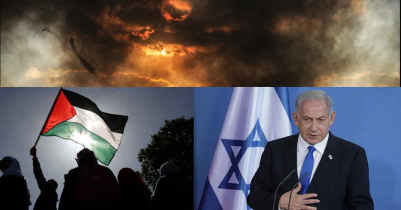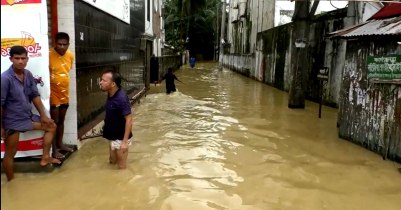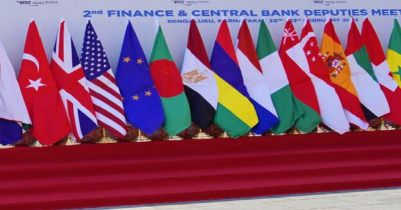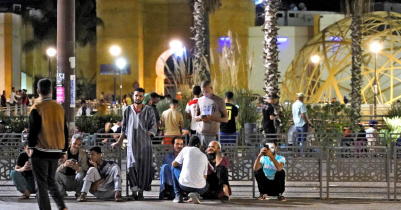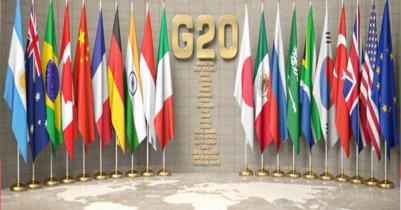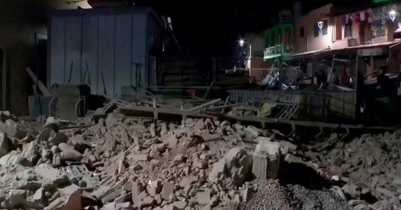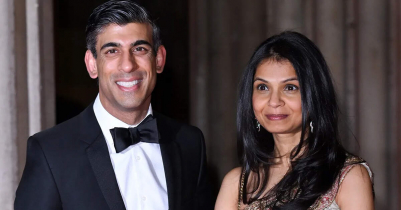Eye News Desk
Enmity between Iran-Saudi Arabia to `harmony`, recent development
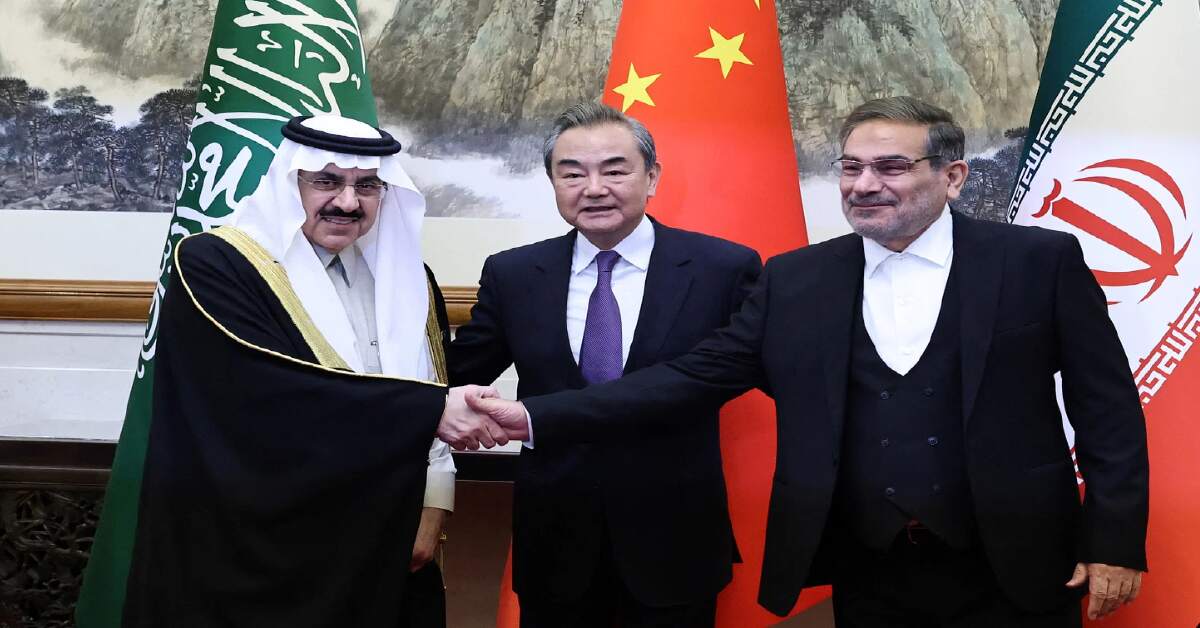
After a long dispute, Iran and Saudi Arabia have reached an agreement to restore diplomatic and trade relations. The tension in the relationship between these two countries has increased the crisis in the Middle East, deepening the conflict in Yemen and Syria. The two countries agreed to restore relations yesterday. China mediated it. The announcement was made after a meeting of the top security officials of the two Middle Eastern superpowers in the country's capital, Beijing. This report is about some recent incidents of conflict between the two countries.
2011: Arab Spring
This year, pro-democracy protesters protested in various countries of the Middle East to demand change in authoritarian regimes. At that time, Saudi Arabia complained that Iran had incited protests against the royal family of Bahrain. Saudi Arabia sent thousands of troops to Bahrain to quell the protests. Iran, however, denies the allegations.
2011: Syria war
After the start of the war in Syria in 2011, Iran-Saudi Arabia again faced each other. Shia Muslim-dominated Iran supports Syrian President Bashar al-Assad. Iran began to provide troops and financial support for Assad's forces to fight against Sunni rebels. On the other hand, Sunni Muslim-dominated Saudi Arabia supports rebel groups in Syria. Then in 2014, Saudi Arabia joined the US-led anti-IS coalition.
2015: Yemen war
Saudi Arabia supported the internationally recognized government of Yemen when the civil war in Yemen broke out in 2015. Launched attacks against anti-government rebel groups. In particular, attacks in areas where the anti-government Houthis have strong positions. Meanwhile, Iran began to support the Houthi rebels.
2015: Death in Mecca stampede
Tensions between Saudi Arabia and Iran have risen again after the death of many pilgrims who were trampled to Mecca during the Hajj this year. Iran accuses Saudi Arabia of failing to manage the world's largest pilgrimage (Hajj). About two thousand pilgrims who went for Hajj lost their lives due to the trampling of the service. Among them, more than 400 worshipers were citizens of Iran. Because of this, the dispute between the two countries started to increase again.
2016: Saudi Arabia severed ties
Saudi Arabia executed prominent Shiite leader Nimr al-Nimr, four months after the Mecca stampede that killed hundreds of thousands of worshipers. This Shiite leader was a critic of the Saudi government. Protesters attacked the embassy in Saudi Arabia in Tehran in protest. At the same time, Iran's Supreme Leader Ayatollah Ali Khamenei warned of "divine retribution" for Nimr's execution. After that, Saudi Arabia severed all ties with Iran.
2016: Iran boycotts Hajj
In the same year, Iran stopped its citizens from participating in Hajj. After this incident, Saudi Arabia launched a Persian language television to promote the Hajj. According to Riyadh, this 24-hour satellite channel will broadcast the Hajj ceremony and all worship services from the Grand Mosque of Makkah. Khamenei condemned Saudi Arabia's handling of the Hajj and advised Muslim countries to consider ending Riyadh's control over the holy Hajj.
2017: Qatar blockade
A regional crisis began in June this year when Saudi Arabia, along with its allies the United Arab Emirates, Bahrain and Egypt, imposed a blockade on Qatar. By imposing a sea, land and air blockade against Qatar, Saudi Arabia and its allies claim that Qatar, like Iran, is undermining regional stability by supporting terrorism. Qatar, however, denied the allegations. The embargo against Qatar was lifted in January 2021.
2017: Riyadh detects missile
In November 2017, Saudi Arabia detected a ballistic missile in the airspace of Riyadh International Airport. Riyadh alleges the missile was supplied by Riyadh and launched from Houthi-controlled areas in Yemen. According to a report published by Saudi Arabia's state-run news agency Saudi Press Agency, Saudi Crown Prince Mohammed bin Salman told then British Foreign Secretary Boris Johnson, "Iran's actions amount to war against Saudi Arabia."
2017: Lebanon's prime minister resigns
Lebanese Prime Minister Saad Hariri suddenly resigned in November this year. His resignation was unexpected for Riyadh. Hariri alleged that Iran is trying to occupy his country through Hezbollah. Later, however, he withdrew his resignation letter. The announcement and withdrawal of Hari's resignation plunged Lebanon into a political crisis. The move was seen as part of a Saudi effort to counter Iran's influence in Lebanon.
2018: US withdrawal from the Iran nuclear deal
In May 2018, then US President Donald Trump announced the unilateral withdrawal of the US from the Iran nuclear deal. Saudi Arabia and Israel praised the US move. Saudi Crown Prince Mohammed bin Salman warned in an American television interview, "If Iran develops a nuclear weapon, we will do so as soon as possible." At the same time, he also called Khamenei "the new Hitler".
2019: Attack on Saudi Arabia
This year, there have been a series of attacks on various facilities in Saudi Arabia. Among them, there was an attack on a facility known as the heart of Saudi's energy industry. Saudi Arabia's crude oil production fell by half. Saudi Arabia blamed Iran for these attacks. Such allegations of Saudi Arabia are false.
2020: Assassination of Qassem Soleimani
Qassem Soleimani, the head of Iran's Revolutionary Guard's Quds Force, was killed in a US drone attack on January 3 of this year at Baghdad International Airport in Iraq. Soleimani was Iran's most influential general. Saudi state media expressed joy over his death.
2021: Iran and Saudi Arabia start talks
In April 2021, representatives of Iran and Saudi sat for talks. Mediated by Iraq. This was the first meeting between the two countries after the severance of relations.
2022: Further discussion
Representatives of Iran and Saudi Arabia held four rounds of meetings between April and September last year. Most of these meetings are mediated by Iraq or Oman. After the fifth round of talks, a top adviser to Khamenei again called for the reopening of the embassies of Iran and Saudi Arabia. After that, Chinese President Xi Jinping visited Saudi Arabia to meet with Crown Prince Mohammed bin Salman, who is considered the ruler of Saudi Arabia.
2023: Consensus to restore relations
Iranian President Ibrahim Raisi visited China last February. He met with Chinese President Xi Jinping in Beijing. A month later, after the meeting between the high-level representatives of the two countries in Beijing yesterday, Saudi Arabia and Iran announced the establishment of all kinds of relations.
Read more
Formation of Jubo League committee in Maldives
Bangladesh in the world`s largest tourism fair in Berlin
- Dubai-bound flight catches fire after taking off from Nepal
- Turkey`s homegrown 5th-generation fighter jet named KAAN
- Shihab Chottur reaches Makkah from India in 12 months
- Eid Ul Adha 2023 in Saudi Arabia!
- Italy will take 82 thousand workers, the is in March
- World`s first 3D-printed mosque to be constructed in Dubai
- India gets new parliament building
- Karnataka: Modi invokes `The Kerala Story` to target Congress
- Imran Khan likely to be in custody for ‘4 to 5 days’
- Two Sylheti killed in Portugal




